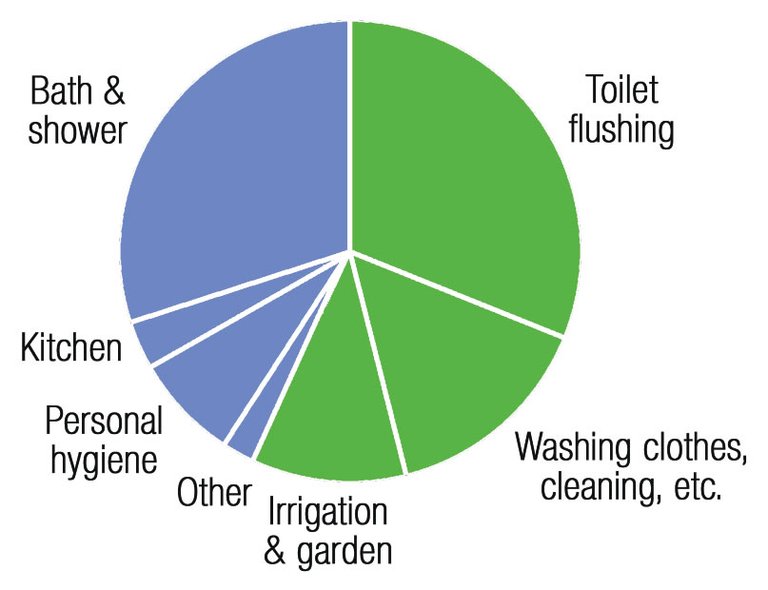
Source
Rainwater is naturally pure, as it has not been treated with chemicals or processed by human hands. Some people believe it is healthier than drinking water, but this is debatable.
Using rainwater can save drinking water and reduce pressure on freshwater supplies. It can also be used in non-potable applications, such as garden irrigation and cleaning, as I mentioned earlier.
However, it is important to note that rainwater is not suitable for drinking without proper treatment. It may contain atmospheric pollutants, dust, leaves or even bird waste. So please do not drink rainwater without taking the necessary precautions.

Source
Some of the advantages of rainwater harvesting are as follows:
Freshwater conservation: Rainwater is a natural source of water that can be used instead of drinking water in a variety of applications. By using rainwater, the demand for freshwater from limited sources, such as rivers or aquifers, is reduced.
Reducing water stress: In many regions of the world, water stress is a major concern due to water scarcity. By harnessing rainwater, pressure on freshwater supplies is relieved, especially during times of drought or scarcity.
Preventing erosion and runoff: Rainwater harvesting can help reduce soil erosion and runoff. When rain falls on impervious surfaces such as roofs and pavements, the water tends to run off quickly, carrying sediment and pollutants into water bodies. By collecting rainwater, this process is prevented from occurring, protecting water quality and aquatic ecosystems.

Source
Promoting biodiversity: Collected rainwater can be used to irrigate gardens, orchards and green areas. By providing additional water to plants, it encourages the growth and diversity of plant species, which in turn can attract pollinating insects and other organisms, contributing to local biodiversity.
Reducing energy and carbon emissions: The production and supply of drinking water requires energy and resources. By using rainwater, the need to pump, treat and distribute drinking water is reduced, which can result in reduced carbon emissions associated with this process.
It is important to note that rainwater must be properly collected and stored, and in some cases, may require filtration and treatment prior to use. In addition, it is essential to comply with local regulations and standards on rainwater harvesting and use.
Congratulations @danielpardo! You have completed the following achievement on the Hive blockchain And have been rewarded with New badge(s)
Your next target is to reach 600 upvotes.
You can view your badges on your board and compare yourself to others in the Ranking
If you no longer want to receive notifications, reply to this comment with the word
STOPTo support your work, I also upvoted your post!